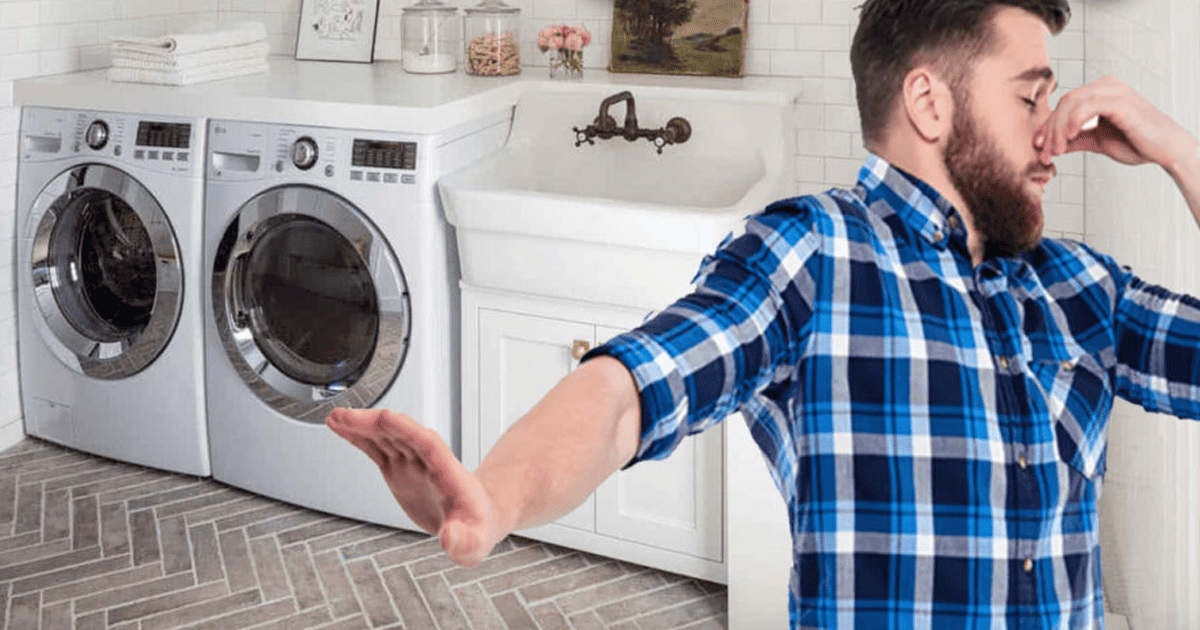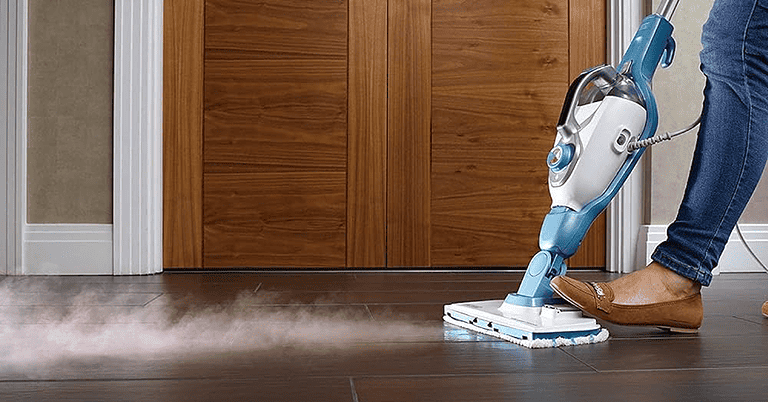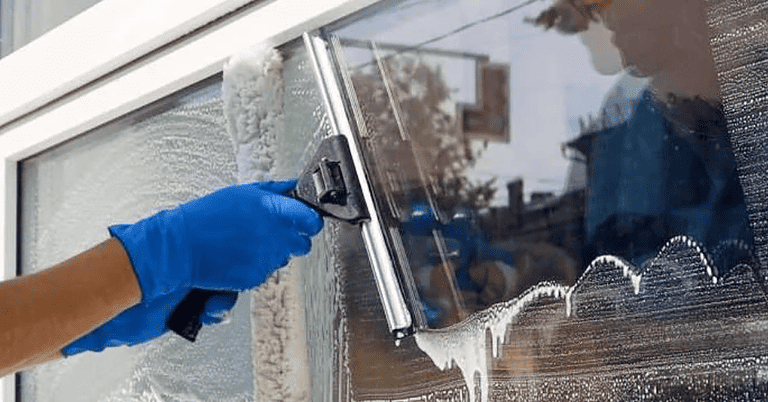Why Does My Laundry Room Smell Like Rotten Eggs
You’ve noticed a nasty rotten egg smell in your laundry room, right? It’s not just unpleasant; it’s a sign something’s wrong. This odor usually means hydrogen sulfide gas, which could come from mold, sewer issues, or a gas leak.
Prolonged exposure isn’t good for your health, so let’s fix it. We’ll explore the causes, offer solutions, and give tips on keeping your laundry room fresh. Ready to tackle this stinky problem?

Tracing the Origins of the Smell in Your Laundry Room
You might be surprised to learn that the rotten egg smell in your laundry room can originate from several sources. It’s not just about dirty clothes; your washing machine, sewer, and an unexpected problem – mold or mildew – can all contribute to the unpleasant odor.
Understanding these origins will help you tackle the issue more effectively and efficiently. (Read Are Banana Trees Poisonous To Dogs)
The Role of Your Washing Machine in the Rotten Egg Smell
If your washing machine’s at the heart of that rotten egg smell in your laundry room, it’s crucial to trace the source of the odor. The smell coming from your washing machine could be due to mold or mildew growth or a problem with the seal of your washer.
Regular cleaning of your washing machine can help eliminate the rotten egg smell.
Washer and Sewer: Linking the Smell to Your Appliance
To trace the origins of the rotten egg smell in your laundry room, let’s delve into the potential issues with your washer and sewer system. The smell from your washing machine could be due to a blocked drain hose or sewer line. Using a washing machine cleaner can help eliminate this smell.
If the sewage smell persists, it might indicate a more significant issue with your washer and sewer system.
The Unpleasant Smell from Your Drain and Sewer
Continuing with the investigation, tracing the origin of the unpleasant smell in your laundry room often leads you straight to your drain or sewer system. The rotten odor coming from your laundry room might be due to a backed-up floor drain in the laundry room or a clogged drain pipe.
If your room smells like rotten eggs, it indicates a possible sewer smell, suggesting your drain or sewer system smells terrible, just like sewage.
The Unexpected Laundry Room Odor: Mold and Mildew
Often, you’ll find that the unpleasant scent of rotten eggs in your laundry room is due to mold and mildew growth. This musty smell is likely coming from your washing machine, especially if it’s a front-load washer.
A dirty washing machine and lint buildup in the dryer can contribute to a laundry room that smells like rotten eggs. To remove the odor, leave the door open after use and regularly clean your appliances.

Why Does the Washing Machine Smell Like Rotten Eggs
If your washing machine smells like rotten eggs, it could be for a few reasons. Frequently, a dirty washing machine or clogged drains can be the culprits behind this unpleasant odor. However, the smell could also be related to sewer gas emissions, so it’s crucial to identify and address the issue promptly. (Read Is A 3000 Sq Ft House Big)
Dirty Washing Machines and the Rotten Egg Smell
Why does your washing machine reek of rotten eggs?
The smell from your laundry room might be due to a dirty washing machine. Old washing machines, mainly when the washer door is left closed, can develop a buildup of mold and bacteria inside the washer. This is especially common if you don’t open the door after use.
A clogged washer drain can also contribute to this foul odor.
Clogged Drains: The Source of the Bad Smell
Besides a dirty washing machine, your laundry room might be stinking of rotten eggs due to a clogged drain. This clog may be in the standing pipe for your washing machine, forcing smelly water back through the hose and into your washing machine.
Detergent buildup can exacerbate the issue. If you can’t clear the clog yourself, it’s time to call a plumber to your laundry area.
Sewer Gas Emission: Linking it to the Rotten Egg Smell
Now that we’ve addressed clogged drains, you might wonder about another potential source of that rotten egg smell in your laundry room – sewer gas emission.
If your front load washer door isn’t correctly sealed after your laundry routine, sewer gas can escape into the room. Even after clean laundry has been removed, the room will still smell if your top-loading machine has this issue.
Getting to the Root: Other Contributing Factors of the Smell
While you’ve got a grip on the basics of laundry room hygiene, there’s more to explore. Consider how your sewage system and appliances, like your front-load washer and dryer, can contribute to that unpleasant rotten egg odor.
Let’s discuss how these factors may secretly sabotage your efforts to maintain a clean laundry room.
Rotten Egg Smell: Unravelling the Effect of Sewage
In dealing with the horrible egg smell in your laundry room, it’s essential to consider the effect of sewage and other root causes. Just like the other pipes, your washing machine might smell like a sock left too long.
Exploring the Impact of Front-load Washer on Room Odor
Facing issues with a rotten egg smell in your laundry room, you should consider how your front-load washer might contribute to this problem. Unlike top-loading washers, front-load models can trap water, causing a foul odor over time.
Regularly inspect and clean your washer with bleach, leave the washer open for ventilation, and plumb correctly to prevent this issue.
Considerations: Dryer and Its Role in the Laundry Room Smell
Beyond your washing machine, it’s crucial to consider the role your dryer might play in contributing to that unpleasant rotten egg smell in your laundry room. Clogged or improperly vented dryers can cause this odor. Regularly clean the lint trap and vent system. If the smell persists, it could indicate a gas leak, particularly if you have a gas dryer. In such cases, contact a professional immediately. (Learn How Long Does It Take For Thin Set To Dry)

Tackling the Smell: Moving from Diagnostics to Solutions
Now that you’ve identified potential causes of the rotten egg smell in your laundry room, it’s time to discuss solutions. From thorough washing machine cleaning to the elimination of sewer gas odors, there are practical steps you can take to tackle this issue.
Let’s discuss how to implement these fixes and prevent future mold and mildew growth, ensuring your laundry room remains fresh and welcoming.
Eliminating the Smell: How to Clean a Washing Machine
To eliminate that rotten egg smell effectively, you must thoroughly clean your washing machine, tackling the issue head-on with a few practical solutions. Start by running a hot water cycle with one cup of vinegar, followed by another with half a cup of baking soda. This helps neutralize odors and break down mineral deposits.
Lastly, wipe the drum and seal with a damp cloth.
Repeat this process monthly for optimal results.
Clearing the Drain to Get Rid of the Smell
If you’re dealing with a persistent rotten egg smell in your laundry room, one of the first things you should check is the drain, as a clogged drain can often be the culprit behind this unpleasant odor.
Start by removing any visible blockage.
Then, use vinegar and baking soda to break down any remaining residue.
Preventing Mildew and Mold Growth in Your Laundry Room
After clearing the drain in your laundry room, you must focus on preventing mold and mildew growth, which are often responsible for that lingering rotten egg odor.
- Regularly ventilate your laundry room and keep it dry.
- Washers should be left open to air out after use.
- Regularly clean your appliances with vinegar or bleach.
- Don’t leave damp clothes in the washer.
Addressing Sewage and Sewer Gas Odor in Your Laundry Room
You’ve pinpointed the rotten egg smell in your laundry room to a sewage or sewer gas issue, so now it’s time to tackle this problem head-on.
Start by checking for blockages in your washer’s drain pipe and the room’s sewage vent. If you find a clog, clear it out.
If the smell persists, it might be a deeper issue requiring a plumber’s expertise. Always prioritize your safety when tackling sewer gas problems. (Learn How Long Do Roses Last In The Fridge)
Conclusion: Ensuring a Pleasant Laundry Room in Your Home
In conclusion, maintaining a pleasant, odor-free laundry room in your home is achievable with regular maintenance and the proper practices. Focus on promoting a fresh laundry space by addressing the common issues that lead to the rotten egg smell.
Promoting a Bad Smell-Free Laundry Space
Keeping your laundry room’s ambiance pleasant and odor-free shouldn’t be daunting. Regularly clean your washer and dryer, leaving no damp clothes behind.
Ventilate the room well and consider air fresheners or neutralizers.
Lastly, watch for mold or mildew, which can cause foul smells.
Regular Maintenance: Key to Preventing the Rotten Egg Smell
Now that we’ve covered ways to promote an inadequate, smell-free laundry space, let’s delve into the importance of regular maintenance to prevent that unpleasant rotten egg smell in your laundry room.
Consistent upkeep is crucial. Routinely clean your washer and dryer, ensure proper ventilation, and promptly address drainage issues.
This helps eliminate the foul odor and extends the lifespan of your appliances, ensuring a pleasant laundry room in your home.



